Damien Chazelle’s Babylon in so many ways feels like a critique of Hollywood and a love letter at the same time. The film’s second big set-piece is a chaotic, absurd, over-the-top send up of silent-era studio filmmaking.
Drugs are handed out like peanuts, asbestos are poured on people’s heads, extras are killed in battle, cameras are destroyed, etc, etc. But through it all, by deftly wielding all the formal power of filmmaking as a medium, Chazelle manages to capture the magic of filmmaking at the same time.
There’s a perfect sunset, the music swells, the camera pushes in… and you feel the emotion.
Even though the entire time Chazelle isn’t letting us forget for a moment that this is all the construction of filmmaking. This moment of romance on the hill isn’t real. And the emotion that Manny is feeling watching this is ultimately just as fake. Behind the camera filming this moment on screen, we know there’s another camera filming that moment.
And yet, as a viewer it is hard not to get caught up in the moment.
Quentin Tarantino does something very similar in Once Upon a Time In Hollywood. Where he films the making of a Western, using Western filmmaking conventions. But something interesting is happening here, he’s not deconstructing or parodying the western as it might appear at first glance, instead it almost feels like he’s drawing our attention to the inherent power of those conventions, even while our disbelief is not suspended.
This is Metamodernism.
“...metamodernism shall be defined as the mercurial condition between and beyond irony and sincerity, naivety and knowingness, relativism and truth, optimism and doubt, in pursuit of a plurality of disparate and elusive horizons. We must go forth and oscillate!”
For a long time I’ve been interested in what comes after postmodernism. I find a lot of postmodern thought and philosophy fascinating, but I also (I think I’m far from alone in this) find where postmodernism seems to lead somewhat frustrating. In many ways it feels like a dead end. When we think about postmodernism in an artistic medium like film, it can become a kind of ouroboros. Today I released a video that I hope will work well as an introduction to Metamodernism in film, and someone left a comment with this quote from C.S. Lewis:
“You cannot go on 'seeing through' things for ever. The whole point of seeing through something is to see something through it. It is good that the window should be transparent, because the street or garden beyond it is opaque. How if you saw through the garden too? It is no use trying to 'see through' first principles. If you see through everything, then everything is transparent. But a wholly transparent world is an invisible world. To 'see through' all things is the same as not to see.”
The trouble is, once you start to see through some things, as I think is almost inevitable in the postmodern world we live in, can you go back? If so, how?
If we take film conventions like genre, style, and story structure and deconstruct them for long enough, what happens when deconstructions (like non-linear storytelling) become the new conventions?
In my search for a compelling post-postmodernism, I first encountered New Sincerity, which identifies a move away from the ironic detachment that postmodernism seems to provide, back towards sincere emotion. New Sincerity is often applied to filmmakers like Wes Anderson (and I did some of this myself). But I eventually encountered “Metamodernism” as it has been more recently developed and popularized by Timotheus Vermeulen & Robin van den Akker, which has been for me the theory of post-postmodernism that seems to lend the most thorough and accurate language to what I feel and see in culture and film. (Ultimately I believe New Sincerity is describing a subset of Metamodern features, the term is just less developed than metamodernism).
What is Metamodernism?
The short version? It’s a proposed description of what comes after postmodernism. It’s a “structure of feeling” that responds to postmodernism and modernism, by in a way, critiquing both of them, and adopting features of both of them into itself. It’s all the fun, self-awareness, and deconstruction of postmodernism, while attempting to simultaneously also have some of the optimism of modernism. It’s a return to the traditional inherent valuing of storytelling. It’s a kind of “holding space” for the benefits of modernism and the critiques of postmodernism together.
The long version? Give my new video a watch.
Why am I talking about Metamodernism?
I have for quite a while, felt a shift in film and TV. Both in the kind of stories that are being told, and the way in which they’re being told. There are a lot of different things that could account for this, but to me Metamodernism is the best theoretical framework I’ve found that seems to describe what this shift actually is.
But also, I genuinely feel like I live and work in a very Metamodern world. I think video essays are a Metamodernist form. Much of the internet content I consume and create feels metamodern. I’ve been wanting a word I could use to describe the strange sense of suspension I often feel between postmodern, modern and traditional thinking. A term that describes the impulse to synthesize the best ideas from each of these broader eras of culture philosophy and art. A word that describes the philosophy that tries to push back against Hypermodernism, the escalating version of Modernism that continues to launch us into a (sometimes terrifying) techno-capitalist future and digital hyperreality. To me metamodernism seems to check all those boxes.
What I think Metamodern films like Babylon, Once Upon a Time in Hollywood, and The Souvenir, showcase is that we don’t need to “suspend” our disbelief to sincerely engage in a story. We seem to value stories on their own. And maybe the inherent subjectivity of stories, that postmodernism is so eager to point out, isn’t really that big of a problem, at least as long as we understand that it’s there.
If you’re interested in digging deeper into Metamodernism, the two resources that really informed my understanding of the concept were the websites Notes on Metamodernism, and What Is Metamodern? They are both fantastic starting points for diving deeper into metamodernism as a concept.
Special thank you to my Patron Supporters and my viewers who watch on Nebula. They really help make bigger videos like this possible.

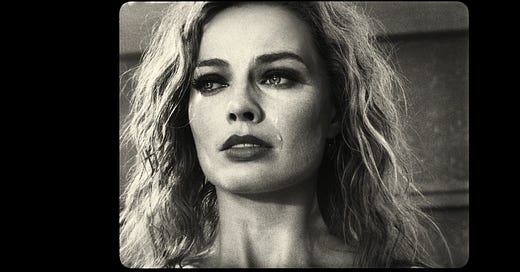

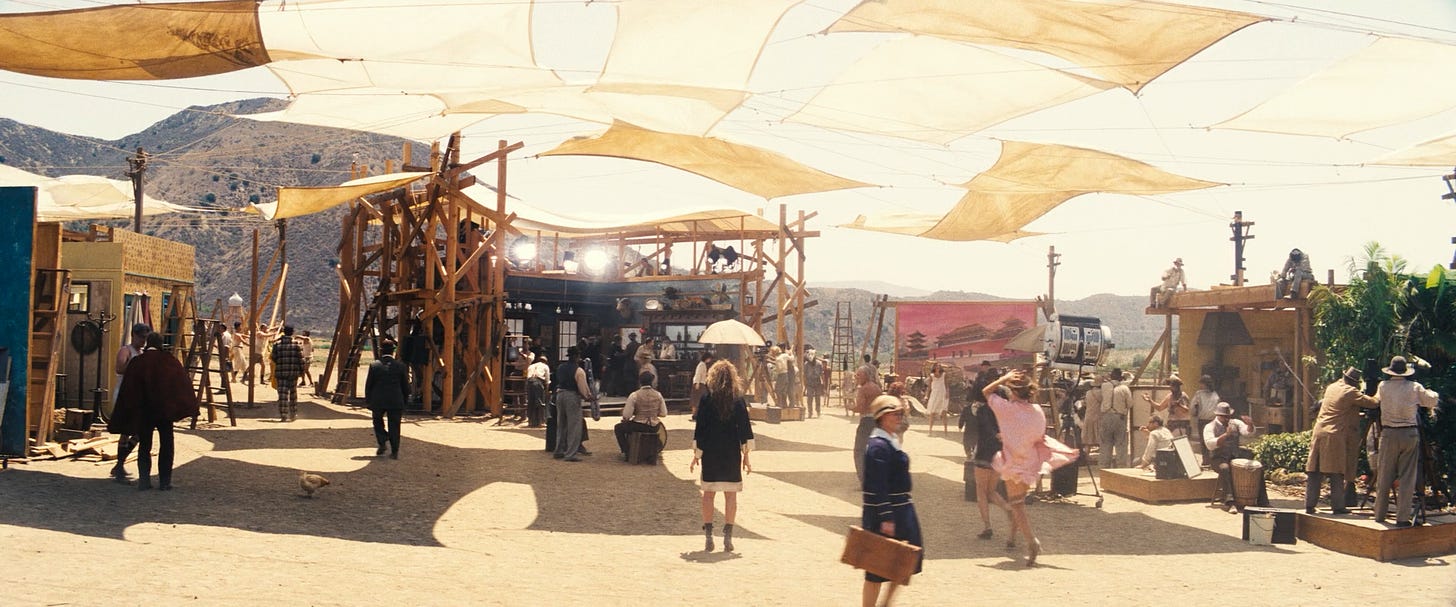

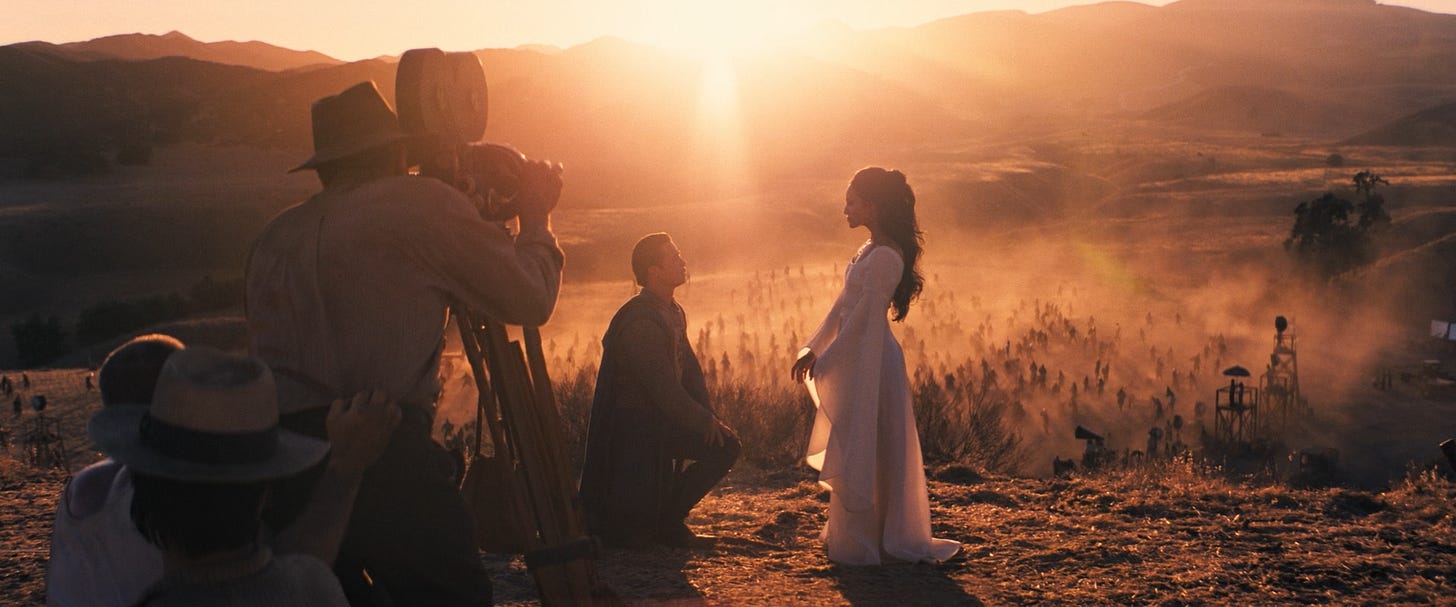
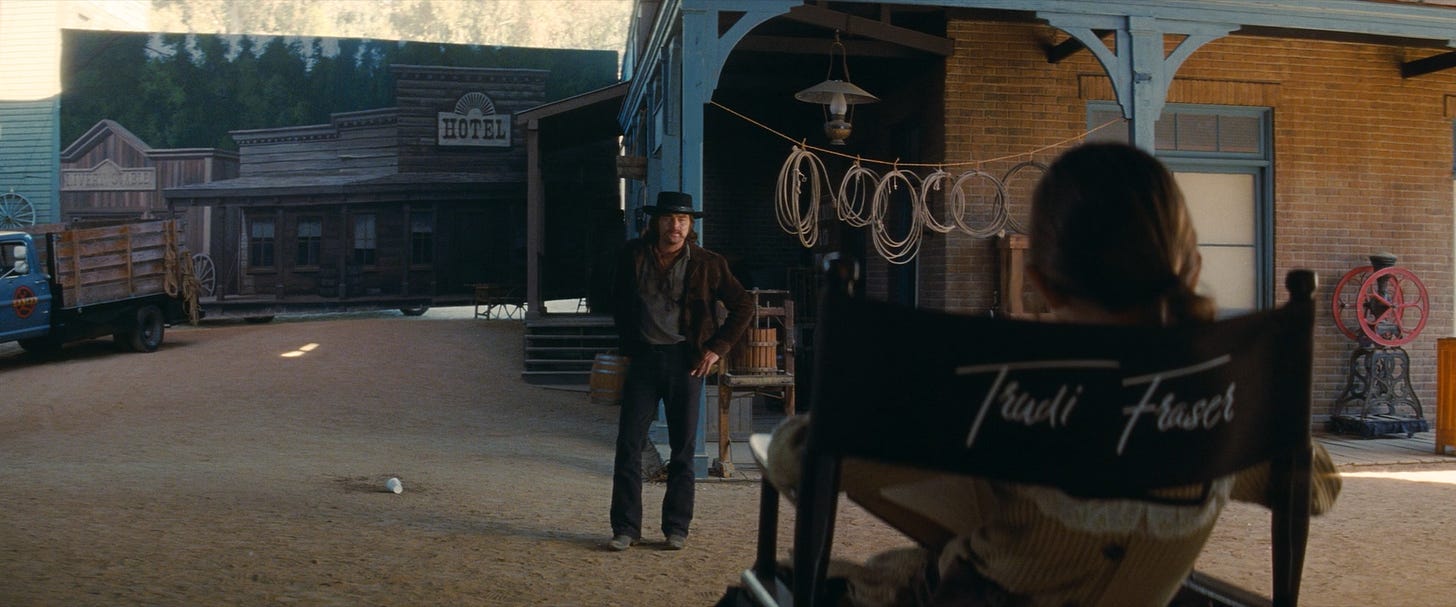

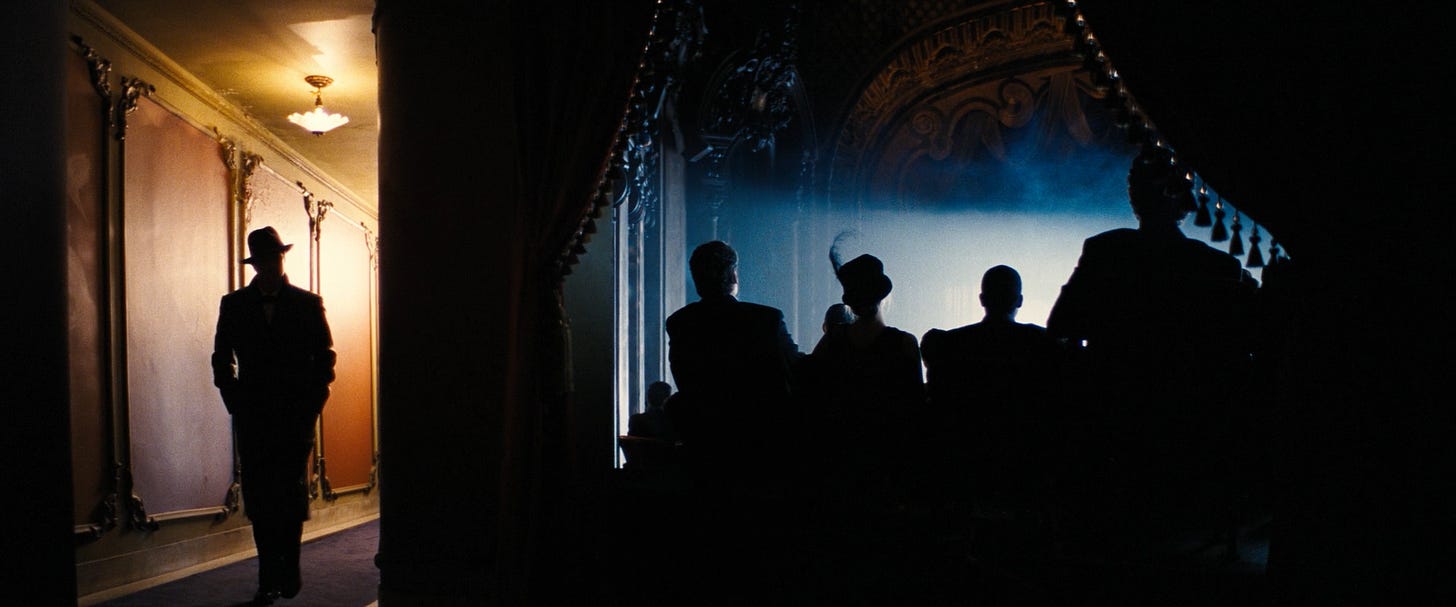
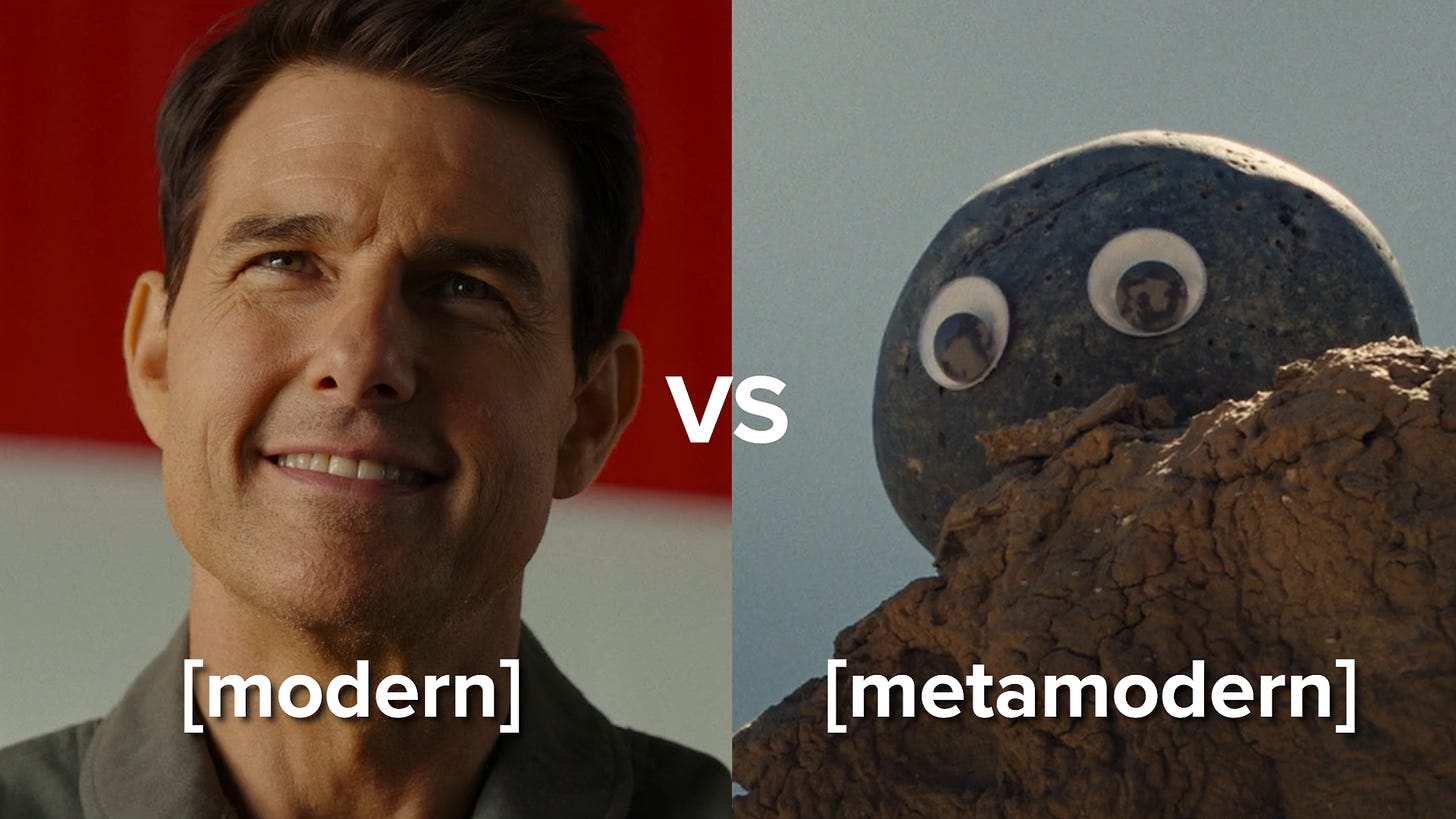
Funny, I was just thinking about this as I was listening to Quinten Tarantino’s latest Video Archives podcast in which he, and cohort Roger Avary, breakdown the career of Once Upon a Time...’s Rick Dalton. QT seems to thrive on this philosophy of building worlds which poke holes through the veil of art to show why they matter to him. The same could be said for Chazelle’s Babylon. Great observations here and I’m looking forward to more analysis on the metemodern movement.
Hey Thomas! Love the piece. Would strongly recommend reading about New Sincerity as a literary and filmic movement. Inspired by David Foster Wallace's piece "e unibus pluram" it encompasses a turn against irony and the bitter aftertaste of postmodernism and toward a softer more authentic experience. Artists involved include Wes Anderson, Cameron Crowe and Michael Chabon.
But great piece and lovely video :)